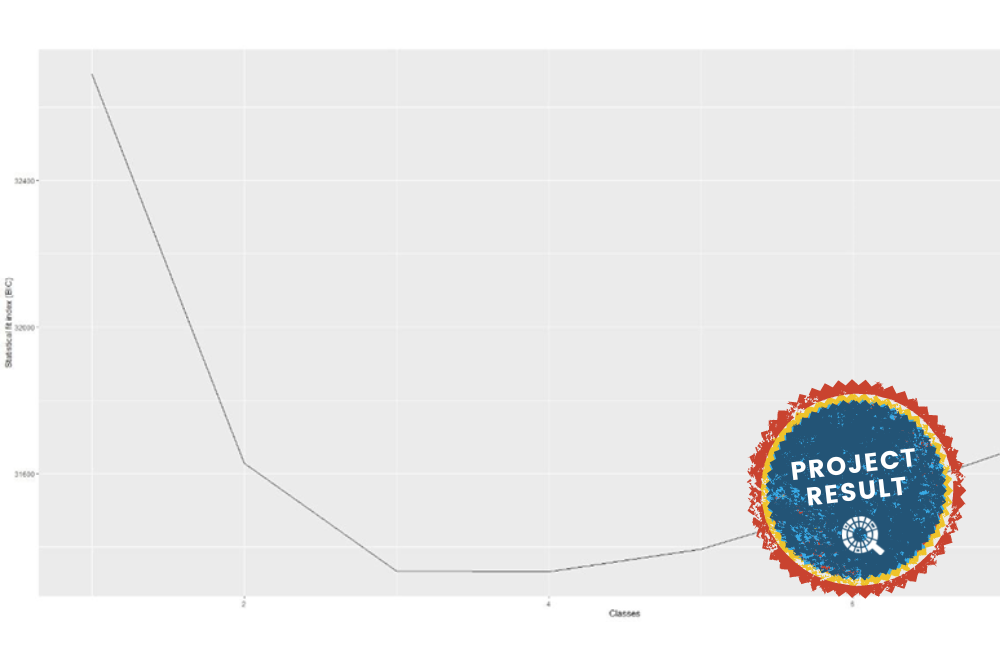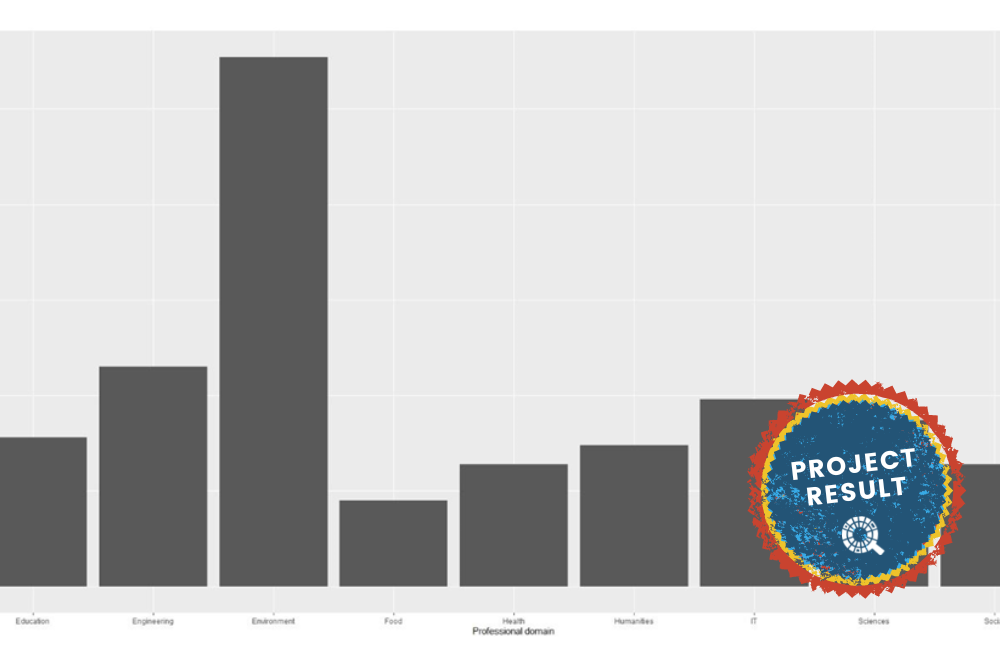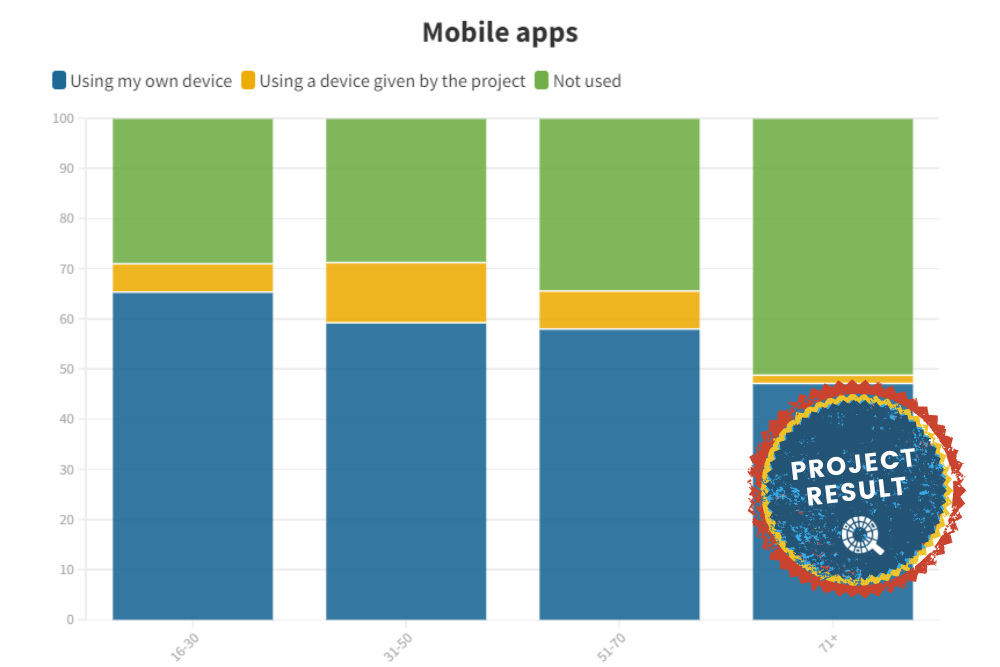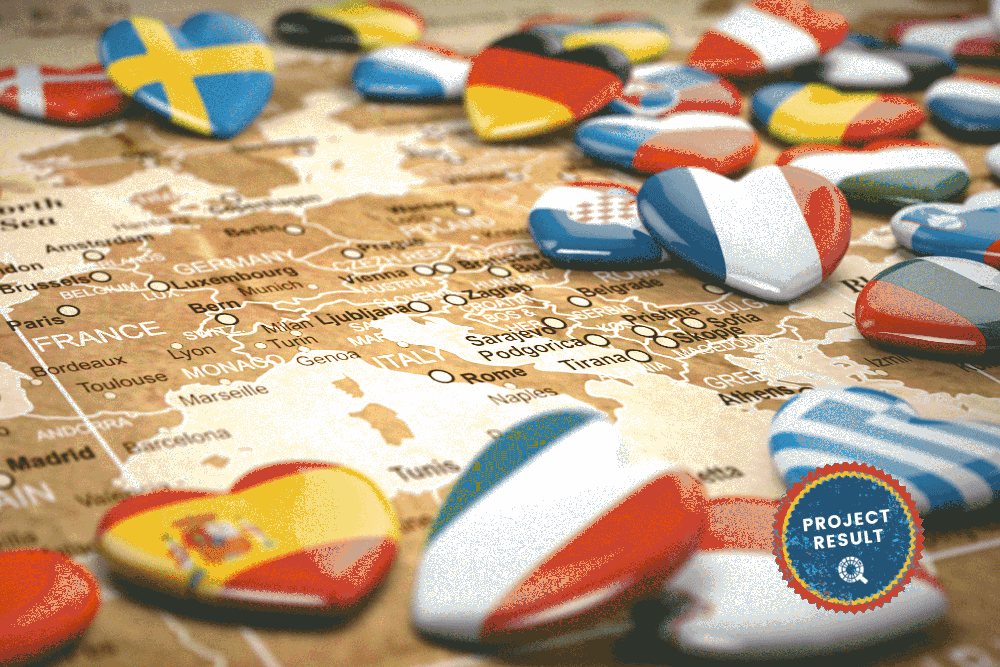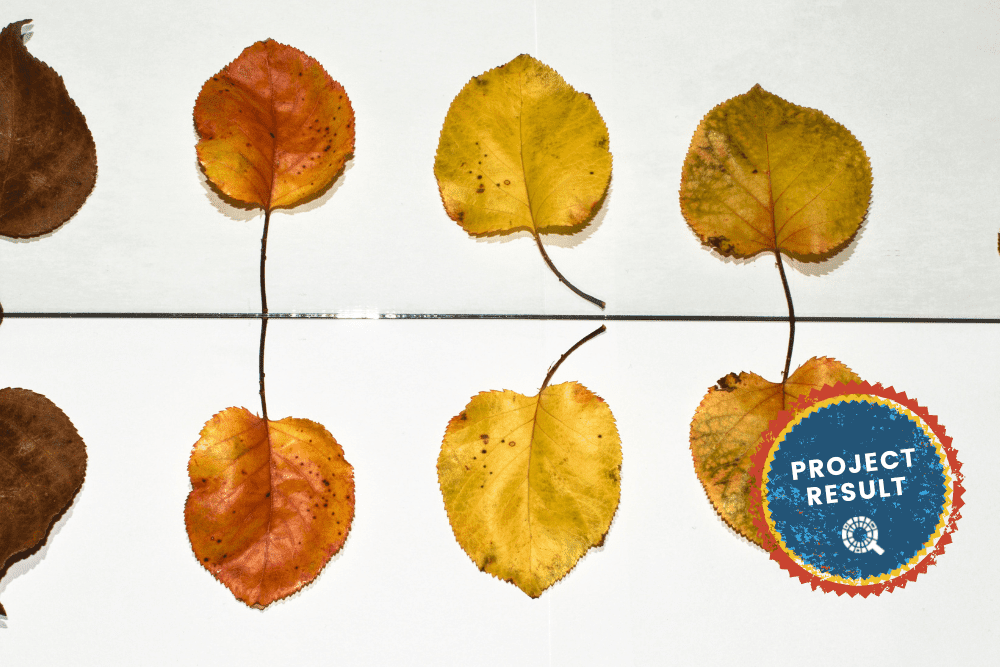Although the results show that there is some talk around educational aspects, Twitter is not mainly used to support educational activities in general.
The conversation arises from certain users that are retweeted a lot of times, but it seems that no interaction comes from those users that are usually retweeted, which means that there could be some interesting information that just stays in the Twitter accounts of ’non-famous’ users.
Social networks and mobile technology have become essential parts of our daily lives. Twitter, which is an open social network, offers a place for discussion and we can easily collect data from it. The interaction among Twitter users in the form of retweets can generate connected networks helping researchers understand the communication that occurs within the platform.
Our analysis showed that Citizen Science and learning are actively discussed in Twitter, as shown by the wide use of hashtags related to these topics. It was also observed that the conversation departs from certain users, who are those with the highest number of retweets, but they do not interact that much with the community (they do not retweet other users). However, there are certain users more actively sharing information that do not receive the same amount of feedback. Although this behaviour is usual in social networks, it can be counterproductive when we want to disseminate information, as happens in education.
Figure 1. Most retweeted hashtags in Citizen Science tweets about education
How to interpret this data
Our data consisted of 123.614 citizen science tweets gathered between 29 September 2020 and 27 January 2021, which were filtered by applying words related to learning and education which reduced the number of tweets to 11761. Considering that this analysis was conducted using tweets between two specific dates, results may vary if the study is replicated in the future. The analysis of those tweets revealed the most commonly used hashtags. In figure 1 we can see the 14 most commonly used hashtags. We see that education is the first one, followed by SDG (Sustainable Development Goals). Afterwards we see many other hashtags related and non-related to education. It is interesting to note that even after filtering by using education topics, only around 30% (education, outdoorlearning, bigschoolsbirdwatch, schools, homeschooling) of the most retweeted hashtags are directly related to educational topics.
We have created a graph representing the retweet network that is created among the users. In Figure 2 we can see the connected components (users and retweeted account), the higher the degree, the more retweets the account received.
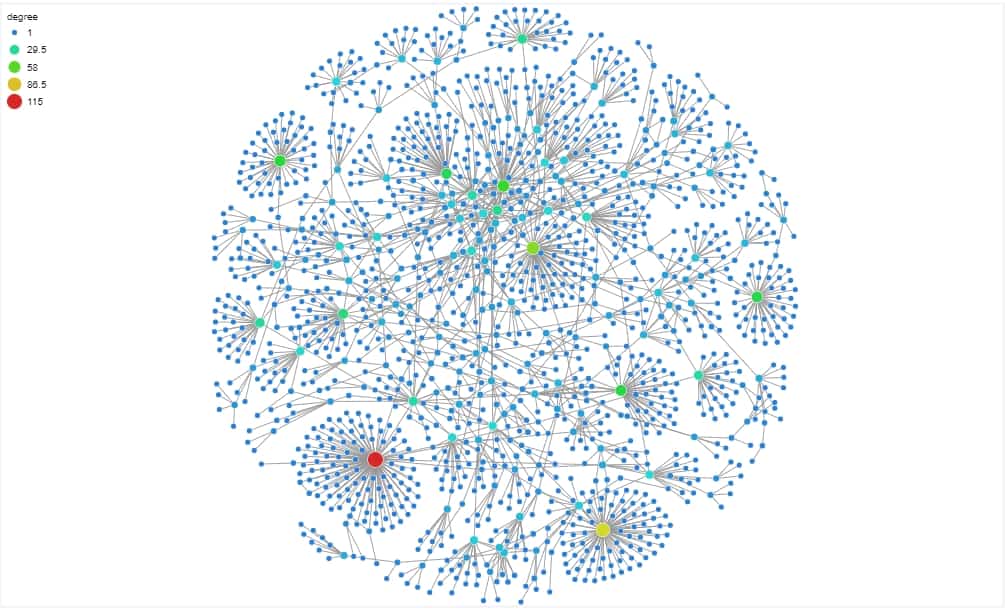
Figure 2. Retweet network
To interact with the data hover over this link. Noted the degree represents the number of retweets given. Scale node sizes by degree and color nodes by degree to see who the more influential users are.
The degree of each node shows the number of retweets that a user has received. We can observe that there are some users that accumulate most of the retweets, creating subgroups within the general network. Further work should be done to analyse if these users act as disseminators of information, because although they are retweeted by many users, they are not active participants in the conversations that occur about education in citizen science projects (they do not retweet other users). This might lead one to think that there could be information that remains in the timeline of non-influential users, hindering the amount of knowledge that could be gained.

